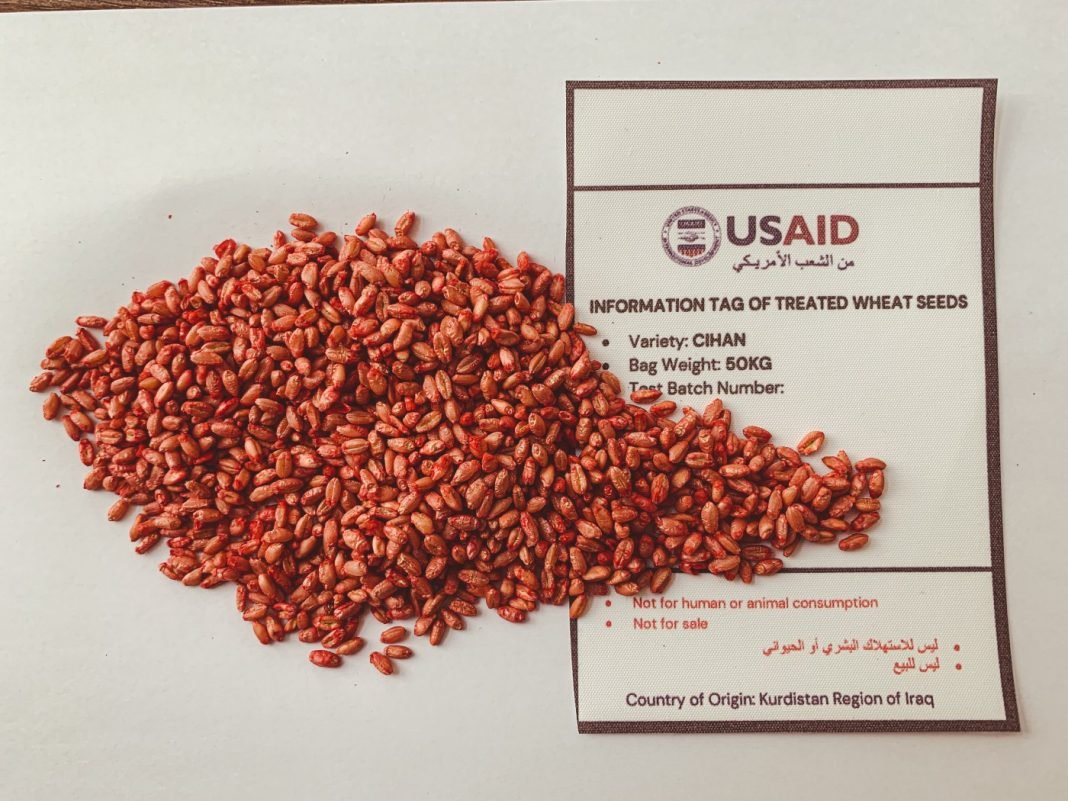Hasakah/Deir ez-Zur, 10 August 2022 (TDI): USAID-supplied treated wheat seeds yield an unprecedented crop in northeast Syria. Syria’s wheat crop has surpassed USAID’s early expectations. Recipient farmers received a more than tenfold return. Thus, the total yield of the seeds provided by USAID is 35,000 tons this year.
USAID/Syria imported and distributed high-quality wheat seeds to farmers in Hasakah and Deir ez-Zour last fall. We are happy to report the seeds grew into 35,000 tons of wheat this season. #SeedsforSyria🌾
Learn more: https://t.co/x51oHIohYC pic.twitter.com/PD0lg3gxg3
— USAID Middle East (@USAIDMiddleEast) August 9, 2022
Wheat is the cornerstone of Syria’s agrarian economy and the main crop in the northeastern region of Syria. Farmers have faced significant challenges due to limited supply and high seed prices in the local market.
Furthermore, Northeast Syria had one of the worst harvests in 2021 due to low rainfall, water shortage, limited availability of better seed types, and increased prices of items like seeds, fertilizers, and agricultural machinery.
Assistance by USAID
Therefore, to avoid a wheat shortage, USAID listened to the demands of Syrian farmers for aid. USAID had provided over 3,000 metric tons of treated seeds to farmers for the plantation season at the end of 2021.
To combat an anticipated wheat shortage this planting season in NE #Syria, @USAID is sending 3K metric tons of quality wheat seeds from Iraq to Syrian farmers. 2021’s wheat harvest was one of the poorest on record; these quality seeds will help prevent a food security crisis. pic.twitter.com/jF2g10XZ4O
— Samantha Power (@PowerUSAID) November 19, 2021
With the help of USAID, these seeds made their way to Syria. The treated wheat seeds were imported from Iraq’s Kurdish area and are now assisting farmers in Syria and relieving the region’s food security issue.
Farmers chosen by their agricultural cooperatives were recognized by USAID as those who would get the most from this delivery. 7,000 farmers in Hasakah and Deir ez-Zour were recipients through a consultative process.
One of the beneficiary farmers acknowledged the extraordinary yield and stated that “The high-quality seeds I received from the United States [produced] around 30 bags of wheat, while the local seeds produced less than 20 [bags].”
By giving wheat seeds, USAID boosted crops and helped farmers collect seeds for the next plantation season. Furthermore, recipient farmers are distributing to local administration who supply subsidized wheat to local people, increasing Syrians’ access to low-cost wheat.








